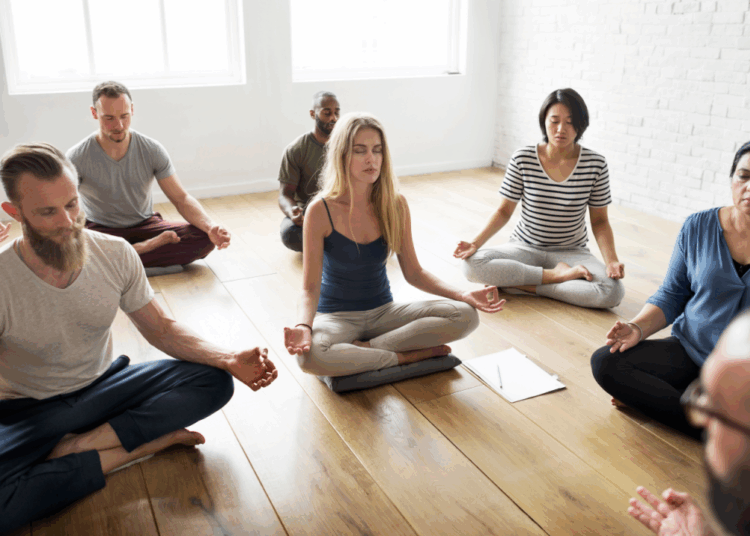Yoga is known globally not only as a physical practice but also as a very profound technique for developing mental well-being. In the following article, we will be presenting the numerous benefits of yoga both for the body and mind. We will also provide a step-by-step beginner’s guide for individuals ready to begin their yoga journey.
What is Yoga?
Yoga is an exercise with physical, mental, and spiritual aspects which was originally practiced in India over 5,000 years ago. The various postures, or asanas, are designed to build flexibility, strength, and body balance, and calm the mind and remove stress.
Physical Health Benefits of Yoga
* Enhances Flexibility: Maybe the most widespread benefit of yoga is that it increases flexibility. Regular practice of yoga poses makes the rigid muscles more elastic and increases the range of motion, which is of the greatest importance to prevent injury.
* Builds Muscle Strength: The majority of yoga poses involve the maintenance of specific positions that build the body’s muscles, especially the core. Strong muscles not only improve posture but also the overall functioning of the body.
* Enhances Coordination and Equilibrium: Yoga includes balance poses, i.e., Half Moon Pose or Tree Pose. These help in coordination and balance of the body to be developed, which will assist in the activities of daily living and overall well-being.
* Reduces Risk of Heart Disease: Regular practice of yoga has been seen to lower blood pressure, reduce high levels of cholesterol, and enhance the circulation of blood within the body, all leading to a healthy heart.
* Relieves Back Pain: Yoga is an excellent therapy for back pain relief. Through postural alignment and stretching, it removes tension in muscles, particularly in individuals who spend most of their time sitting at a desk.

Mental Benefits of Yoga
Reduces Stress and Anxiety: While there are numerous causes of yoga, one of the most significant is its incredible ability to reduce stress. Breathing exercises (pranayama) and meditation that form the part of yoga practice soothe the nervous system and lower cortisol levels, which are the stress hormones.
1. Improves Sleep Quality: Yoga is a natural remedy for insomnia. It soothes the mind and calms the body, enabling one to sleep soundly at night. Some poses such as Savasana and Child’s Pose are particularly useful in relaxing into sleep.
2. Enhances Concentration and Attention: The complementary interaction of conscious awareness and mindful breathing in yoga is used to enhance concentration and mental sharpness. Such improved concentration of the mind can prove to be helpful at work and in school, helping people be more present and effective.
3. Strengthens Emotional Well-being: Through daily practice of yoga, it enhances emotional strength and self-awareness. It enables people to manage their emotions more effectively, leading to inner peace and a pleasant mood.

A Beginner’s Guide to Yoga
Don’t panic if you are a beginner when it comes to yoga. Adopt some easy steps that will lead you to yoga:
1. Select the Appropriate Yoga Style: Beginners should begin with gentle styles of yoga, such as Hatha Yoga or Vinyasa Yoga. These types of yoga are slow in movement and incorporate controlled breathing, which is ideal for beginners.
2. Begin with Simple Poses: Begin with simple poses like Child’s Pose, Cat-Cow Pose, and Downward Dog. These simple poses will acclimatize your body to the movement pattern in yoga.
3. Pay Attention to Your Breathing: Yoga is not just physical, but it’s also about the right breathing. Pranayama, which is regulating one’s breath, is important for physical and mental well-being. Observe slow, deep breathing while practicing.
4. Be Consistent: Consistency is the golden rule when it comes to any exercise. Attempt to practice yoga a minimum of 2-3 times a week. Regularity will make you realize the actual gains within a few weeks.
5. Listen to Your Body: Tune in to what your body is trying to communicate and avoid pushing yourself too hard, especially in the beginning. Yoga is a process of listening to your body and being aware. If you feel any pain or discomfort, stop and rest.
Yoga is a holistic practice that offers great advantages to the body as well as to the mind. With flexibility, strength, and balance enhanced, as well as stress and anxiety relieved, yoga offers a complete solution to health. To start with, yoga is not merely a way that molds the body but also one that calms the mind. Start slowly, do it regularly, and notice the good changes yoga brings to your life.











